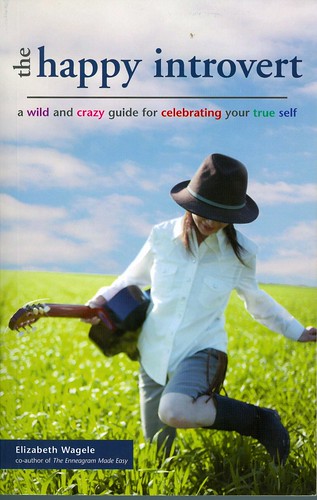 Today I would like to share an article written by Elaine Aron on grief.
Today I would like to share an article written by Elaine Aron on grief.
Grief is thought to serve the function of drawing attention to the fact that a hole has been rent in the social fabric that holds you up and sustains you in love. We are social animals, so we live in a web of human (and animal) connections as much as fish live in the sea. We do not choose consciously to become attached to our parents or have favorite friends or fall in love. We don't have to. It's instinct. It is so important to survival that it is not left to rational decision making. We don't have to say to ourselves, "I think I'll love this interesting person named Jane" the way we say, "I think I'd like to take a vacation in New Zealand." There's no escaping. We love. And so there's also no escaping loss and grief.
Except for a few monks who have vowed to give up all attachments, the threads in your social fabric differ in the centrality of their role of supporting you in that weaving. They range from those you would deeply miss to those very, very few whom it may seem that you could not live without. (Fortunately, the three whom I lost in April and June were not in that last category. If I had lost one of them, I would not be writing this right now.)
These categories of importance are not about our relative appreciation or valuing of them as people (or animals--pets can also fall into these categories), but simply how much they currently feel like necessities. At the top are those whose loving presence has been almost constant, a source of basic security and daily companionship. Or a special friend or teacher who gives your life meaning. With parent or child, biology itself keeps the attachment at a high level. Whoever they are, these are the few who shape your life so that it would be shapeless without them. It may seem that their loss would create "unbearable" suffering. In these cases we say, "I couldn't live without him" or "I can't imagine my life without her," and we seriously mean it. I am going to focus on this level of loss and grief, because I suspect it is what HSPs experience more often than others and certainly fear the most.
Fear of the Really Big Loss
The fear of the grief caused by a big, big loss is as important a subject as getting through such a loss, because this fear can pretty well ruin things, and it can all go on in the unconscious to protect our conscious mind from being afraid all the time. This is where being an HSP might enter: Our trait makes us tend to look ahead and try to prepare for what we think may be coming. In this case we know the size of our love and so we can feel the size of the loss that is almost certain to come. And if you have a personal history of early losses and separations, that in combination with your sensitivity means you often look ahead far more than you would like to the possibility of losing one of the one or two threads that hold your entire life in place. Can anything or anyone prepare you for such a loss?
I don't usually discuss spiritual matters because one's beliefs are so personal, and everyone's are so varied. But my first rule is to say what might help one of you. After years of seeking the type of spiritual faith, philosophy, practice, or community that I could imagine sustaining me through such a loss, I have come to the conclusion that, for me, it does not exist. And I think it is okay if you are like me in this. If you read C. S. Lewis's
A Grief Observed you see that even this very devout Christian was truly overwhelmed for a time after his wife's death. (
Shadowlands, the movie based on the last years of his marriage, might be worth your watching.) Accepting this has been an odd relief, actually. I can stop straining for something that will hold at such a time and stop feeling like spiritual a failure because I have not found it in the sense that it would end this special fear.
Mind you, faith, philosophy, practice, and community have benefited me and I would not give them up. But in regard to my imagining these helping much in the case of the Big, BIG Loss? No. Not at first. And well, why should they? As someone wise told me, when you love or attach so strongly, of course the "I" or the ego can't handle the immensity of the loss. Loss, like love, does not operate on that level of consciousness. It goes along its own course, and steering it is like thinking we are steering a wild elephant because we happen to be on it as it goes where it will go. If the ego decides to go to Hawaii, it can usually make that happen, and if it can't go for some reason, the ego can recover from the disappointment, or even decide not to be disappointed at all. But when you lose someone you love, your reaction is an instinctual process as much as birth and death, and mostly we have to go with that process and endure as best as we can, using our measly coping strategies and receiving a lot of help from others. (One source of help I liked was Nancy Cobb's
In Lieu of Flowers: A Conversation for the Living.)
Avoiding Loss (Not) 101
Perhaps love and the loss that comes with it might still seem like a source of pain that we could avoid if we were determined to. In a way we can. After a trauma around love or attachment, we often build a defense that overrides instinct (a defense that may be an instinct of its own) that keeps us from
really loving anyone again. It doesn't make us very happy, but it does in its way limit future grief, even if it causes a different kind of ongoing grief.
Most people spend a lot of time in therapy or couples counseling whittling down whatever fear of loss they have that is based on the past. That could seem like a dumb idea, fostered by optimistic therapists who tout love without mentioning its cost. Why not leave the defense alone? Because the defense doesn't really work anyway. If we try to stop our love impulse, it just sneaks out and attaches itself to the most awful choices. So as with love, so with grief--almost the only thing the ego can do is "go with it," perhaps steering a little bit but not doing much more.
You could still try, at the time of the loss, to build a huge wall around the grief or around yourself or both. But we have all seen now how badly that works out. It leads to psychological, if not physical, death. Or, if you have said a million times that you could not live without a certain person, perhaps there is something in your unconscious that would at least consider physical death. But almost all of us have that darn instinctual need to survive that stands in our way. And even if the will to live failed, the HSP's conscientiousness would keep you alive: You would feel too guilty that you had put yourself out of reach of those who might need you. No, usually the flow of grief does not end up in the sea that is life's end, even if we might at times wish it would. You are going to be stuck with this nightmare for awhile. You have to go with it.
Riding the River of Grief
The flow of grief, however, is no easy ride. Personally, I often fear I cannot survive it for the same reason I'm scared of kayaking, roller coasters, or even sliding down a slide. I'm a coward about going with any flow. Something awful could happen. In the case of grief, it is dead certain that it will. And I will have no choice about it.
However, what I have learned from the grief I'm having now is that to some degree it helps if you can let go into it. Human instinct or the human spirit (same source but different terms) has its own wisdom that definitely, definitely cannot be found in my highly sensitive mind or highly scared ego. These are instincts regarding grief that all humans have had since the dawn of time. (As do all social animals--we know elephants, whales, primates, dogs, etc. also grieve.) If I let go into this instinctual reaction, only attempting to steer around the worst rocks, the raft will usually get through the rapids just as a twig would. I could be scared, wet, and miserable, but time and the river will take me through to quieter waters. With the worst rivers, mind you, you may need to paddle more and have others helping, and still might not be perfectly safe. The rocks are a serious danger, "perfect conditions are a must," but the river still carries us.
Does that mean I've found my spiritual answer? Does the river love me, or the raft, or the source of these and of everything? Not sure, but you could see it that way, and that would definitely help. Perhaps it all depends on the class of rapids. As grief guidelines, I have included the standard classifications of rivers (from ABC-of-Rafting.com). I think you will see how it works.
Class I – Easy
Characterized by low waves, small rapids, and slow current, Class I rivers are very easy to navigate. Maneuvering is not required in this class.
Class II – Moderate
Basic training is necessary to navigate this river class, which is characterized by faster currents. Experienced paddling skills may be required.
Class III – Moderately difficult
Rapids in this river class change all the time. This class, which has harsh currents, requires maneuvering and experienced paddling skills.
Class IV – Difficult
Aside from experienced paddling skills, boating maneuvers are also essential when navigating this river class. Violent currents, moreover, can throw a rafter off a boat.
Class V – Extremely difficult
Intense rapids that hide rocks are a regular in a Class V river, making it dangerous for some rafters. Therefore, advanced whitewater experience is necessary.
Class VI – Extraordinarily difficult
No one actually attempts to ride this river class since this poses extreme difficulties. The fatality risk is high, and if one does have to brave Class VI rapids, perfect conditions are a must.
P.S. A practical point: Cry as much as you can. It helps to press something soft and full against your chest. Ideally make that another person. Otherwise, you can make do with a pet, pillow, or, yes, a stuffed animal.



 That is, even when doing a simple, abstract cognitive task, culture influences perception.
That is, even when doing a simple, abstract cognitive task, culture influences perception.



